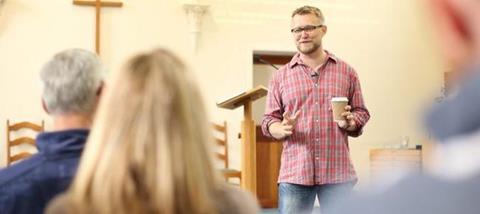
Can the government command you to do anything it wishes? If they told you what to eat on Thursdays, who to kiss, or how much time you could play with your toddler, would you obey their commands? Or would you tell them that such matters are not their concern?
This is not a recent issue for Christian thinkers. The former Prime Minister of the Netherlands, Abraham Kuyper, was also a prolific theologian. One doctrine Kuyper expounded was that of ‘spheres of authority’. According to this doctrine, all authority comes from God, and he designates it to various human institutions: husbands, parents, individuals, church leaders, civil government, school teachers, etc. This doctrine teaches that these institutions have a specific authority granted to them to fulfill the responsibility that was uniquely theirs.
As a minister and church elder, I have a limited sphere of authority within my congregation. I am to lead the congregation in worship and discipleship. If I step outside of that sphere, I misuse my authority, and the congregation should disobey me. If I tell people what foods to eat, who to vote for, or what car to drive, I am using my authority like a cult leader and not like a biblical elder. No one should have limitless control over others. Not parents, not teachers, not bosses, not pastors...and not politicians.
God grants the government authority to do some things, but not others. The call to assemble for worship is not a responsibility that begins with the government, and the government doesn’t have the authority to revoke it.
Had the government been conscious of its sphere, it would have approached church leaders, given them information about the virus along with some advice, and let the church leaders decide what to do considering the potential threat.
By not challenging the government, the Church is consenting to the government’s misuse of authority. The Church should be a prophetic voice to remind civil leaders of their place and responsibility before God. We give to Ceasar what is Ceasar’s, but we rebuke Ceasar when he demands what belongs to God. In doing so, the Church protects both its members and its neighbours - as many unbelievers in our communities also suffer from this mismanaged overreach: loneliness, loss of children’s education, suicide, not being able to see a doctor for screenings, etc.
Is gathering essential?
The second reason why Christians should challenge the government is because of what scripture teaches about gathering. In an age where people think they can get the full church experience via YouTube, this is a neglected doctrine.
The Old Testament often speaks of the importance of the assembly: "Let them exalt him in the assembly of the people’ (Psalm 107:32). In the New Testament, we have a similar concept with the term ‘congregation’ (or ‘churches’). We hear it said - usually by a wide-eyed, well-meaning soul - that church is not a building, it is the people. "We don’t go to church, we are the church!" they exclaim. To this, we might politely nod and respond: Quite so.
We are not a congregation all by ourselves. An eyeball is not a human body, nor is an ear. It is as we assemble that we become the body of Christ. In one way, Jesus is always with us. In another way, he comes to us when we gather: "where two or three have gathered together in my name, I am there in their midst" (Matthew 18:20). And, though a building is not absolutely necessary to gather, in our British weather, it is helpful.
Can we gather via the internet? I am grateful for the Zoom conversations I’ve had. It does good. Likewise, I’m sure Paul was thankful for the technology of writing and scrolls that allowed him to communicate with the congregations he oversaw. But he often expressed in those letters his deep desire to meet with them in person. They weren’t a replacement. Why? Because God didn’t send us a letter or Zoom call from heaven. He took on flesh and dwelt among us.
Baptism, the laying on of hands, hugs, breaking bread and sharing wine - these things are essential to our humanity and spiritual growth. Though phone calls and Skype are better than nothing, they are insufficient and will harm our people if we try to use them as a replacement for incarnate fellowship.
The government enforced lockdown is a misguided project. It hurts both the individual and the entire community. We love both our neighbours and our members by wisely resisting it.
Joshua D. Jones is an EFCC minister in North Hertfordshire. He is the author of a free devotional e-book on Elijah and The Girl and the Guardian, a biblical fiction of Mordecai and Esther. He blogs at sanitys-cove.com
To read a different view on this subject: Why our desperation to keep church buildings open is misguided
Premier Christianity is committed to publishing a variety of opinion pieces from across the UK Church. The views expressed here do not necessarily represent those of the publisher



























